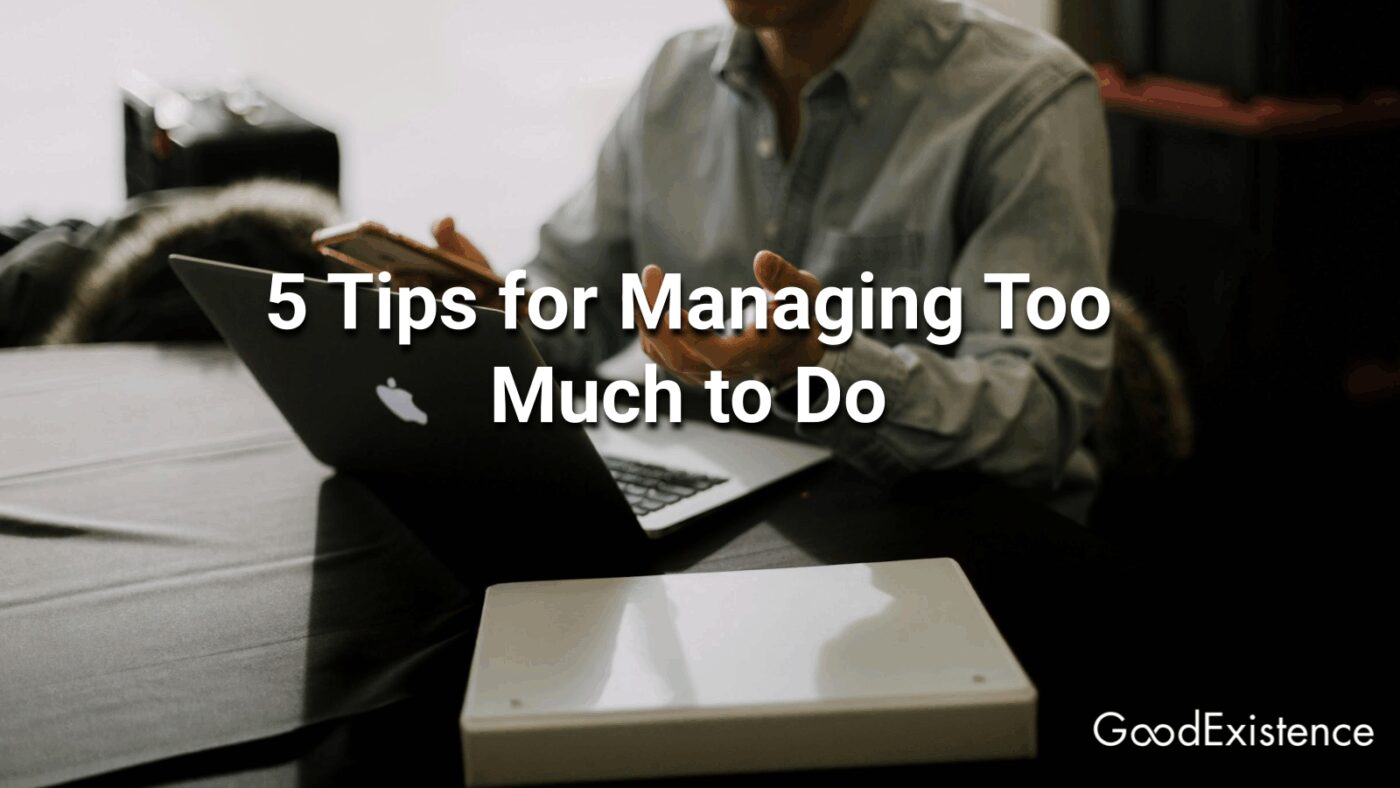Ever feel like your to-do list is longer than the day itself?

Yeah, same here.
We’ve all had moments of staring at a mountain of “stuff” we need to do—work tasks, family responsibilities, health goals, personal growth, you name it. It’s overwhelming. You want to stay on top of things, but instead you find yourself stressed and exhausted, maybe even slipping back into old habits just to cope.
I know that cycle well. Years ago, I was stuck in a loop of procrastination, binge eating, and feeling like I was always falling behind. I thought the solution was to just try harder, grind more, and power through—but that only made things worse. It wasn’t until I took a step back and changed my approach that things started to shift.
So if you’re feeling like there’s just too much on your plate, here are 5 game-changing tips that helped me manage the overwhelm and keep moving forward—one simple step at a time.
1. Do a Brain Dump to Clear the Clutter
One of the biggest stressors when you have too much to do? All those thoughts spinning in your head like a broken record. You keep trying to remember everything—which only makes you feel more overwhelmed.
Here’s what helps: dump it all out. Every little task, project, idea, and worry.
Grab a notebook or open a blank doc and write down everything that's taking up mental space. Don’t worry about organizing it yet. Just get it out.
Once it’s all in front of you, it becomes manageable. You’ll probably realize a lot of it doesn’t need to be done immediately—or at all. This simple exercise alone can take a huge weight off your shoulders.
When I started this habit, I stopped waking up in the middle of the night thinking, “Oh no, I forgot to…” It gave me mental peace and made the next step easier.
2. Prioritize Ruthlessly
Not everything on your list deserves equal attention. I used to treat all tasks like they were urgent. Answering emails felt just as critical as preparing for a job interview. That mindset kept me trapped in busywork.
Instead, I started practicing this simple rule: identify the ONE thing I must get done today, no matter what. Just one. This helped me focus on what actually moves the needle and gave me a sense of accomplishment—even on chaotic days.
Try this:
- List your top 3 priorities for the day.
- Star the one that matters most.
- Do that task first, or time block it in your day.
When I was working on rebuilding my health and life, I made my top priorities crystal clear: eat one healthy meal, move my body for 30 minutes, and write in my journal. It wasn’t always perfect, but those small daily wins added up to big change.
3. Set Time Blocks, Not Marathon Sessions
One of the biggest lessons I learned while creating Good Existence was that deep work doesn’t mean long hours.
Early on, I tried to hustle nonstop. I'd sit at my desk for hours, telling myself I was being productive. All I really did was burn out and open a new tab for YouTube.
What works better? Short, focused time blocks.
I started doing 2 to 4 hour bursts of deep work, then gave myself permission to stop. No guilt. No pressure to grind all day. This actually made me more productive—and gave me energy for other parts of life.
You can start small:
- Set a 25-minute timer.
- Pick one task.
- Go all-in during that time.
- Take a 5-minute break.
It’s like adding healthy structure to your day. And it frees up time for rest, reflection, or just going for a walk (which is often when my best ideas hit anyway).
4. Say No More Often (Without Guilt)
This one’s tough, especially if you're a people-pleaser or overachiever.
I used to say “yes” to everything that came my way—work requests, social invites, extra projects—thinking I could juggle it all. The result? Burnout. Bad habits creeping back in. Feeling resentful and stretched thin.
Now I practice saying “no” without feeling guilty. Not because I don’t care—but because I do care. About my health, my mission, and doing things with purpose.
Every time you say “yes” to something, you’re saying “no” to something else—maybe rest, family time, or your own goals.
Ask yourself:
- Does this align with my priorities right now?
- Am I agreeing out of guilt or pressure?
- What would I have to sacrifice to say yes?
The more I protected my time, the more I actually got done—and the better I felt.
5. Celebrate Small Wins and Trust the Process
If there’s one thing I’ve learned through losing over 110 pounds, rebuilding my life, and growing in faith—it’s this: consistent small wins matter more than random bursts of effort.
I used to beat myself up if I didn’t tick every box on my to-do list. I thought I had to do it all perfectly. That mindset kept me stuck. But when I started celebrating the little things—like choosing water over soda or making it through a focused work session—I started to see progress.
Keep a list of your wins at the end of each day. It could be:
- I ate one healthy meal.
- I avoided a temptation.
- I finished my top priority.
- I prayed or journaled for 10 minutes.
Those wins build momentum. They remind you that you’re capable. And when you stack them over months or years, they lead to transformation.
Final Thoughts
You don’t need to do it all. You just need to take your next step.
Whether that means writing everything down today, setting one clear priority, or saying a much-needed “no”—choose one thing to help you breathe a little deeper and move forward.
Life gets busy, and that's okay. But peace and purpose don’t come from getting everything done. They come from knowing what matters most—and giving it your best.
What’s one thing you can let go of today to make room for what really matters?
Your time is valuable. Use it well. You’ve got this.





